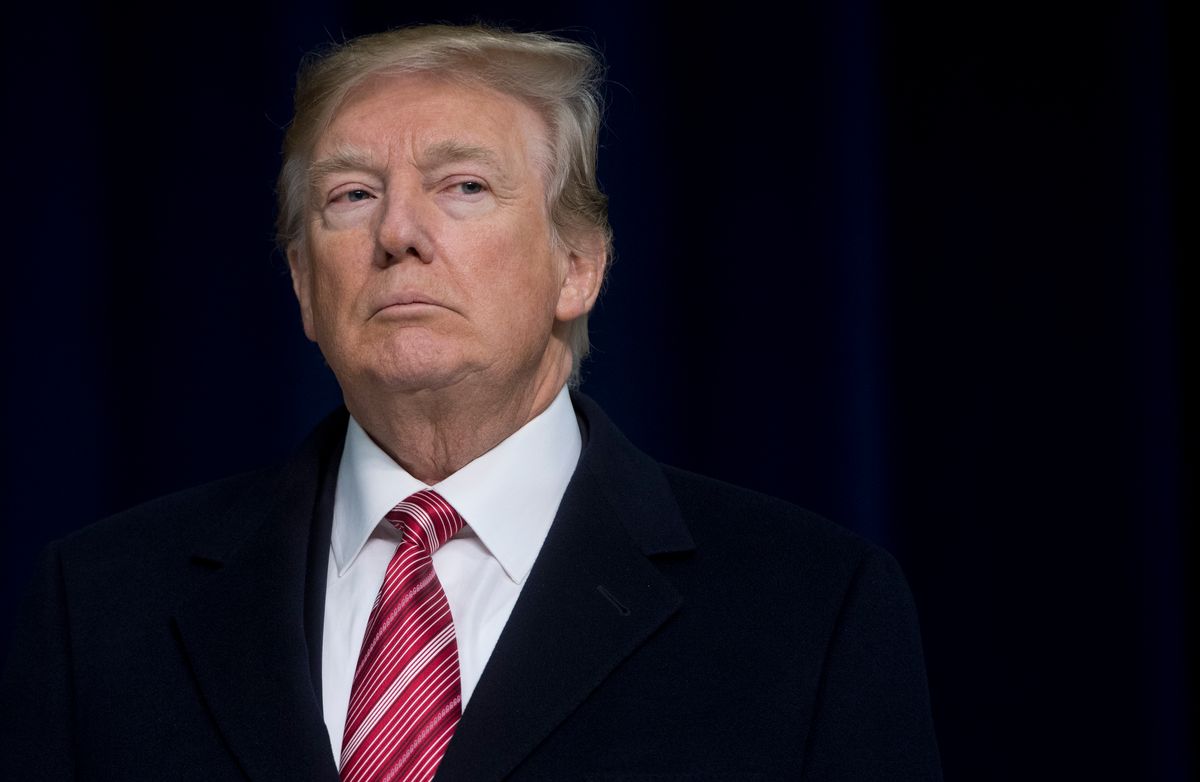Washington Post journalists in a forthcoming book claim the former president floated the idea. But it remained unclear, as of this writing, when in February 2020, to whom, and in what context the president made the allleged suggestion.
In June 2021, Snopes readers asked us to determine the legitimacy of something former U.S. President Donald Trump had supposedly said about COVID-19 during the early days of the global outbreak.
According to rumors, he advocated for a plan that would somehow ship Americans who contracted the virus to the same detention base where the country detains terrorism suspects, Guantánamo Bay.
The claim stemmed from reporting by two Washington Post journalists.
According to a new book written by Yasmeen Abutaleb, a health policy reporter at the newspaper, and Damian Paletta, an economics editor for the Post, Trump twice floated the idea of sending some of the country's first COVID-19 patients to the Naval Base in Cuba.
Let us note here: The journalists' work, titled "Nightmare Scenario: Inside the Trump Administration's Response to the Pandemic That Changed History," was set to release June 29 (six days after this report) so its exact contents remained unknown to Snopes.
However, The Washington Post said it obtained an early copy of the book, and, with that pre-publication version, the newspaper published excerpts in a June 21 article that read:
'Don’t we have an island that we own?” the president reportedly asked those assembled in the Situation Room in February 2020, before the U.S. outbreak would explode. 'What about Guantánamo?'
'We import goods,' Trump specified, lecturing his staff. 'We are not going to import a virus.'
Aides were stunned, and when Trump brought it up a second time, they quickly scuttled the idea, worried about a backlash over quarantining American tourists on the same Caribbean base where the United States holds terrorism suspects.
Based on the article, it was unknown when in February 2020, exactly, Trump reportedly made the comments, nor whether his tone was serious, jovial, or something else.
Also unclear was who told Abutaleb and Paletta that Trump had supposedly made the statements, presuming the writers themselves did not hear them firsthand in the Situation Room. We reached out to both journalists to learn about their research and fact-checking processes for the anecdote regarding the detention base, specifically, and we have not received responses.
Overall, the book was based on interviews with more than 180 people, including multiple White House senior staff members and government health leaders, the article stated.
We also reached out to the former president to comment on the journalists' reporting. Our inquiry included a question asking, if the book accurately documented his idea about Guantánamo Bay, whether he stood by the statement today. No one has yet returned our message, but we will update this report when, or if, that changes.
In sum, while Washington Post journalists said Trump once advocated for shipping Americans who contracted the virus to Guantánamo Bay, we cannot determine the truth of the claim until we hear from someone who witnessed Trump's remarks firsthand, or if we uncover documentation that substantiates the journalists' reporting. Until then, we consider the claim "Unproven."


